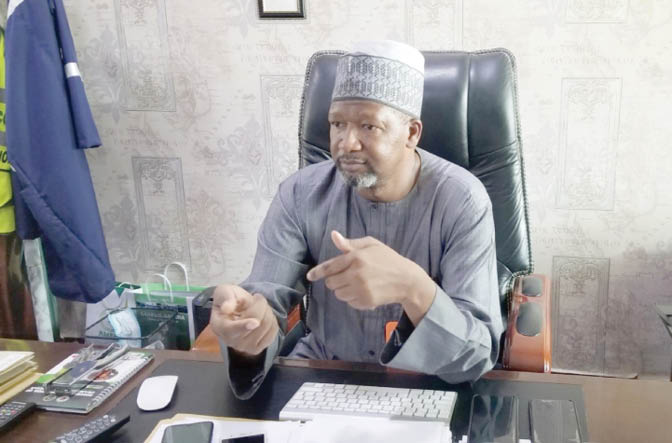In this interview, Alhaji Tajuddeen Aminu Dantata, the chairman of Dantata Food and Allied Products and owner of one of the largest oil mills in West Africa, spoke on his company’s innovations, the importance of animal production, among other issues.
Your company is known for processing and marketing agro products. What are the new things you are doing?
- Few passengers as Aminu Kano airport reopens
- Kano, Maiduguri airports safe for flights operations — Sirika
Initially, we engaged in the exportation of raw materials, but recently, we looked inward and realised that there are lots of opportunities in agricultural processing. There are so many agricultural produce going out of the country and coming back as finished goods. In our own capacity, we have been trying to see how we can put a stop to that by processing our own products to be able to export semi-finished goods with a higher value.
Based on that, we went into the agricultural field. We have begun oil milling, as well as fast-moving consumables. We are now into farming through a well-established collaboration with smallholder farmers to ensure price security.
We intend to key into Federal Government’s Anchor Borrowers’ Programme as off-takers. And that can guarantee our factory a steady supply of the raw materials needed for our products.
What plan do you have to improve the capacity of the smallholder farmers you will be dealing with?
Now that there is an increase in demand for the produce these small farmers have, yet they are doing it the way they were doing it. There is a need for the farmers to have the technical know-how on how to improve their production to get more money and more produce, using the same land.
That is why we are working with them, as well as closely monitoring what they do. We educate them on new farming innovations that will benefit them, by ensuring increased productivity.
We have established demonstration farms for them to see and learn, under the supervision of our experts. These, among other innovations, have been what we are currently working on to boost the smallholder farmers’ productivity capacity.
Recently, you were reported to have signed a Memorandum of Understanding with the Bayero University, Kano (BUK); what was it about?
You see, as the population is increasing, the need for shelter increases, and as such, access to land is gradually becoming more and scarce as new settlements are springing up. There are also issues of insecurity regarding farmers-herders and other communal crises affecting agricultural activities.
There is a need to go scientific and adopt information and communication technology-driven agricultural practices. Therefore, the Centre for Dry Land Agriculture (CDA) in BUK came up with scientific solutions that will assist smallholder farmers in proper management of scarce water and land.
We are looking at working with them on how to have improved varieties of crops that would be able to do well in areas with scarce water and land. However, we have mapped out 100,000 farmers we have been working with to benefit from the research findings on scientific management of scarce water and land, as well as improved productivity.
It is our wish to see an improved agricultural sector driven by smallholder farmers by sensitising them on the adoption of modern technologies available to boost their productivity level and economic statuses.
We are also into the promotion of the production of organic food, which happens to be what is presently dominating the international market. We believe this will create a huge agro-market for Nigeria. And through the smallholder farmers we are dealing with, we will, no doubt, attain that, God willing.
Do you have any plans for animal breeders?
Yes, we do. We have introduced a special project through our Ruga animal feeds, with specification on animal breed, in respect to their environment. Under this, we have engaged over 200 breeders, and under our expert supervision, gave them animal feeds for fattening. We have also planned to off-take these animals from them and process for domestic use, as well as international export to Asia and the Middle East as ‘Halal meat.’
This is what we are currently doing. And the breeders we engaged have begun to see the difference. We are certain that within a short period, we will expand the number of breeders we will work with.
How would you assess the Federal Government’s policies on agriculture?
There are a lot of government policies on agriculture; some are accessible while some are not. In my understanding, the funds involved should be revolving, with close monitoring for continuity, especially with the anchor borrower intervention.

 Join Daily Trust WhatsApp Community For Quick Access To News and Happenings Around You.
Join Daily Trust WhatsApp Community For Quick Access To News and Happenings Around You.


